Find Help
More Items From Ergsy search
-
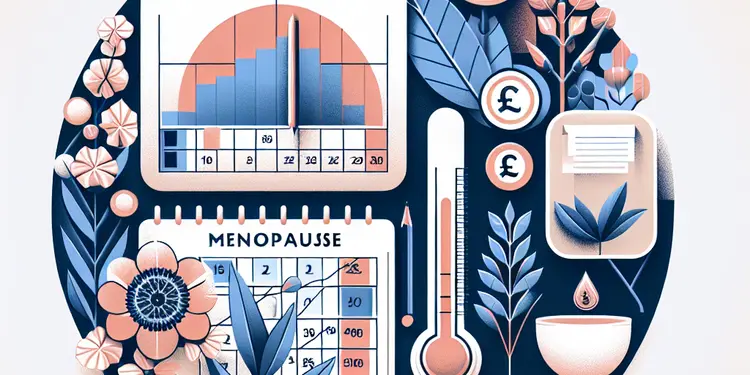
What is menopause?
Relevance: 100%
-
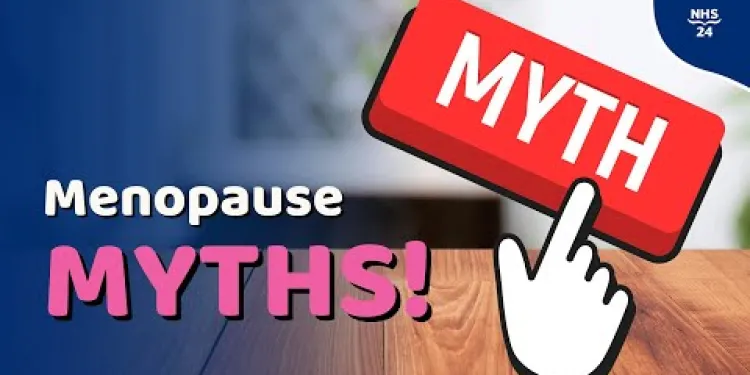
Menopause Myths
Relevance: 100%
-
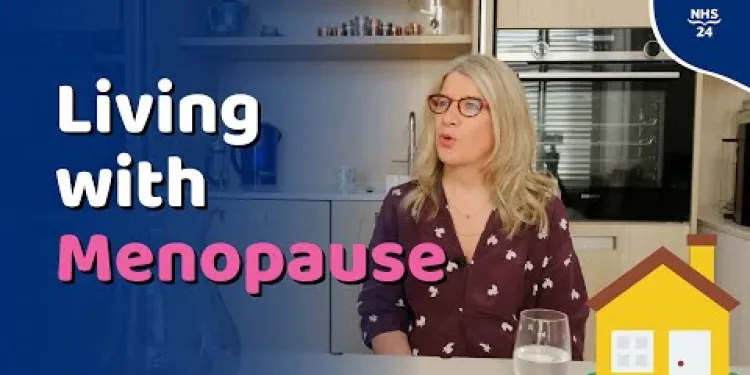
Living with the menopause
Relevance: 100%
-
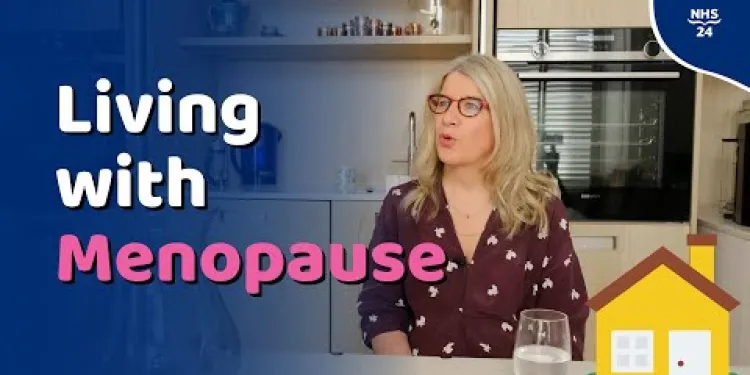
Living with the menopause
Relevance: 99%
-
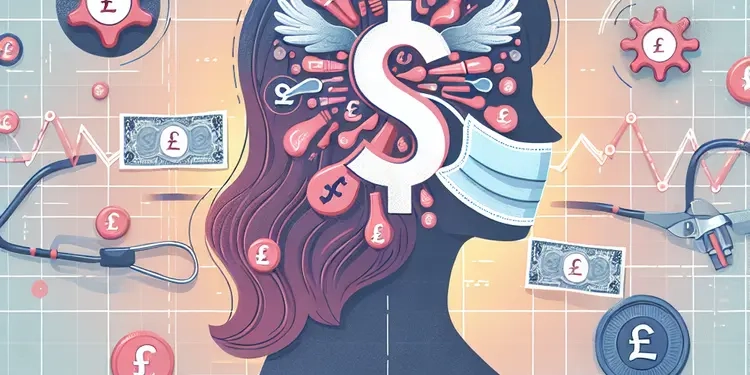
What is menopause masking?
Relevance: 96%
-

What is menopause masking?
Relevance: 96%
-
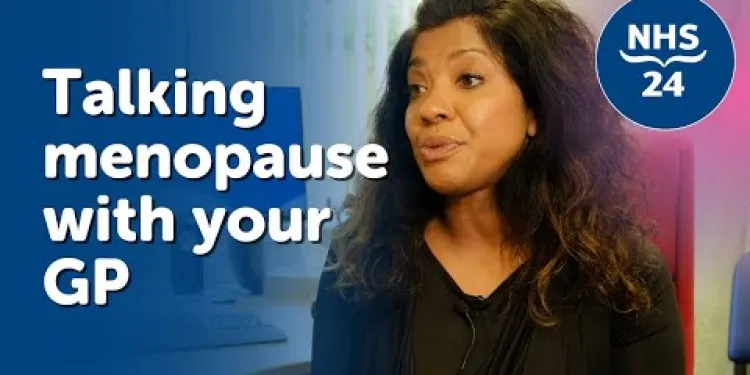
Talking menopause with your GP
Relevance: 93%
-
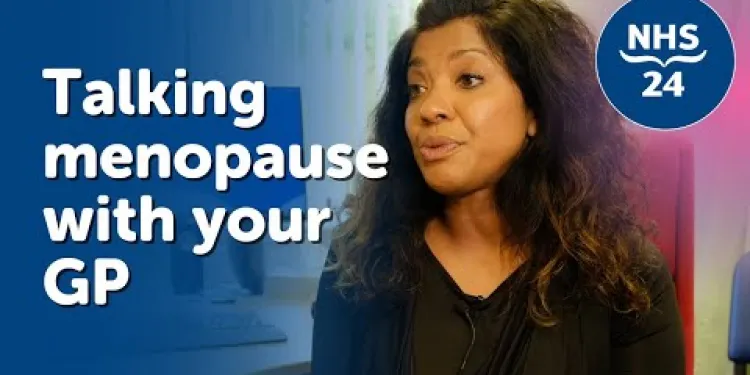
Talking menopause with your GP
Relevance: 93%
-
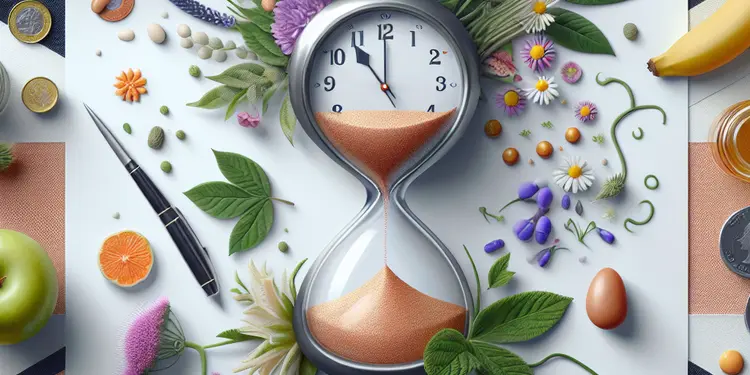
Is it possible to delay menopause naturally?
Relevance: 92%
-
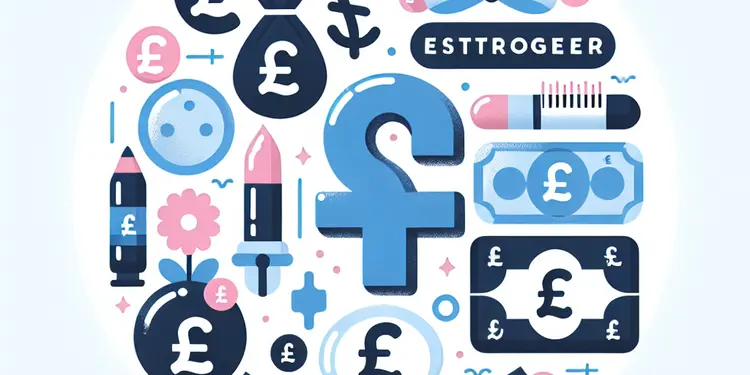
What is the role of estrogen in menopause?
Relevance: 91%
-
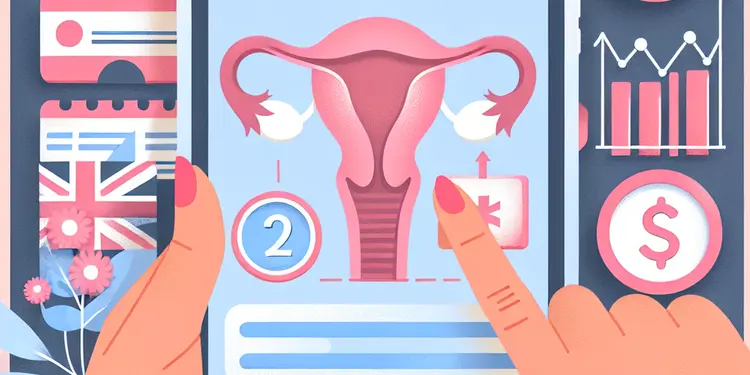
What are common symptoms of menopause?
Relevance: 91%
-

Are there natural remedies for menopause masking?
Relevance: 90%
-
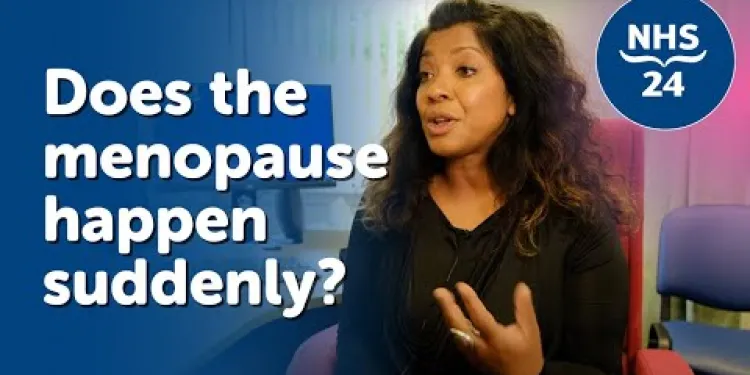
Does the menopause just happen suddenly?
Relevance: 89%
-
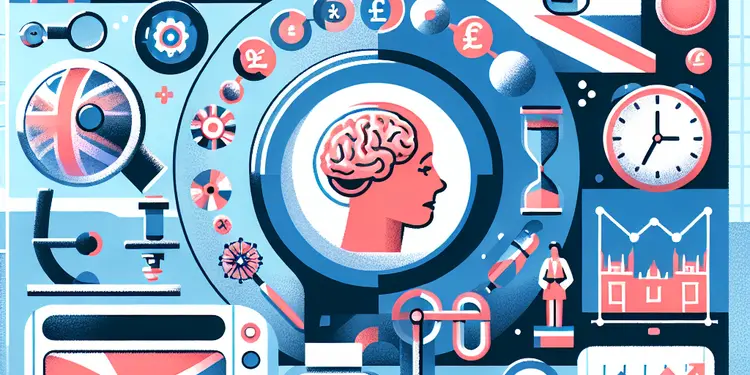
Is there scientific evidence linking menopause to dementia?
Relevance: 88%
-
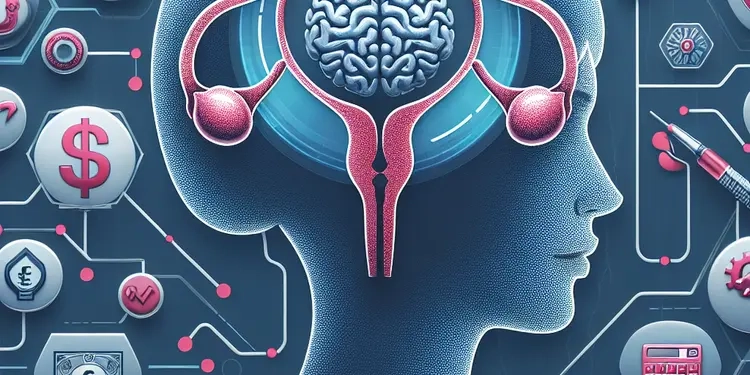
Is menopause linked to loss of brain matter?
Relevance: 88%
-
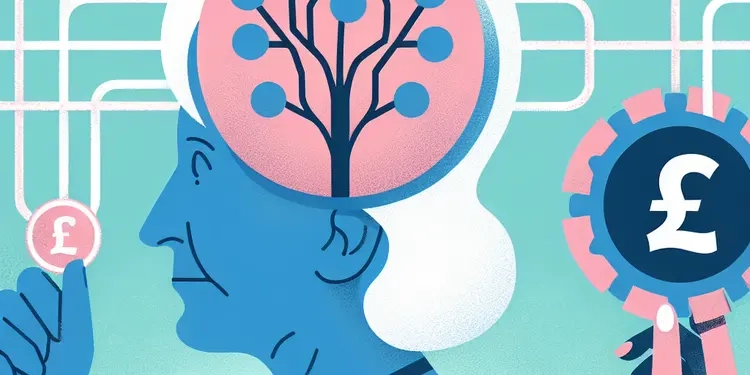
What are the links between menopause and dementia?
Relevance: 88%
-
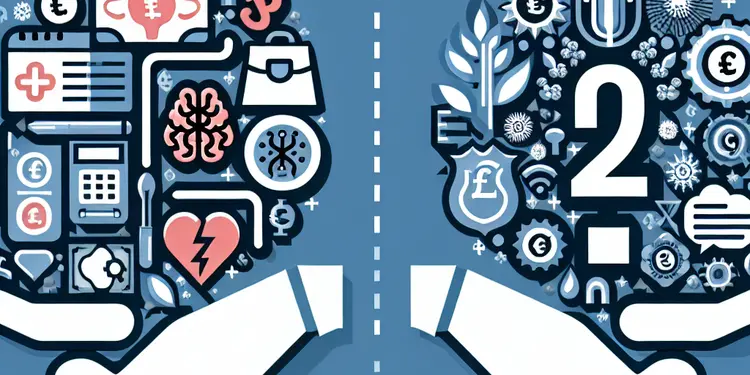
Are there specific types of dementia linked to menopause?
Relevance: 88%
-
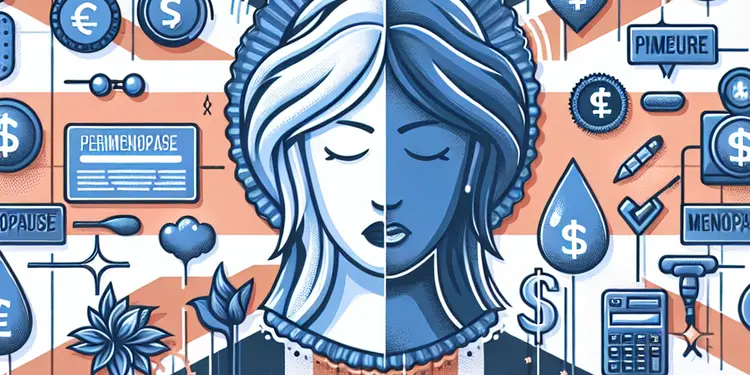
What is the difference between perimenopause and menopause?
Relevance: 87%
-

What treatments are available for menopause masking?
Relevance: 87%
-
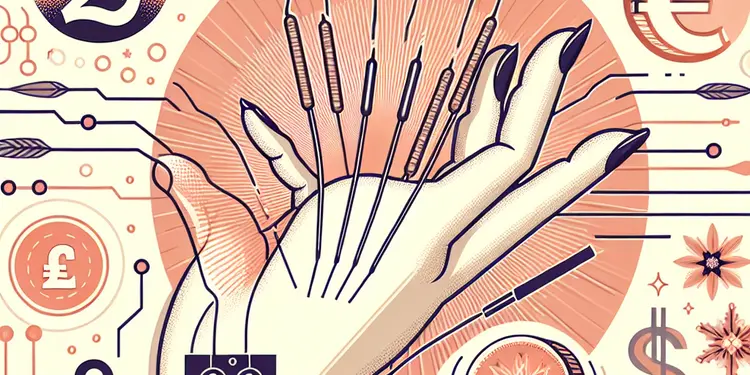
Can acupuncture help with menopause masking?
Relevance: 87%
-

How long does menopause typically last?
Relevance: 86%
-
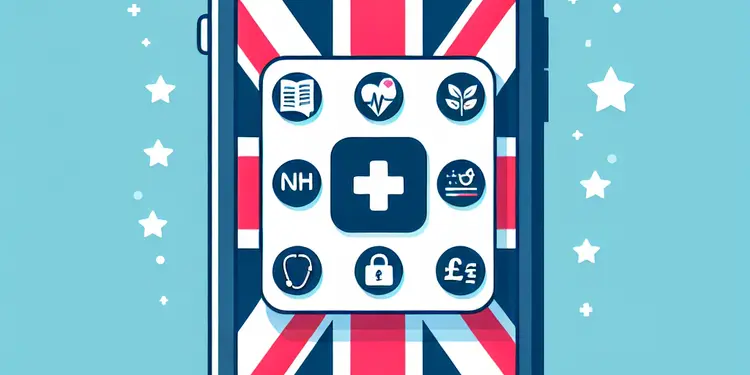
Are there any NHS apps for managing menopause symptoms?
Relevance: 86%
-
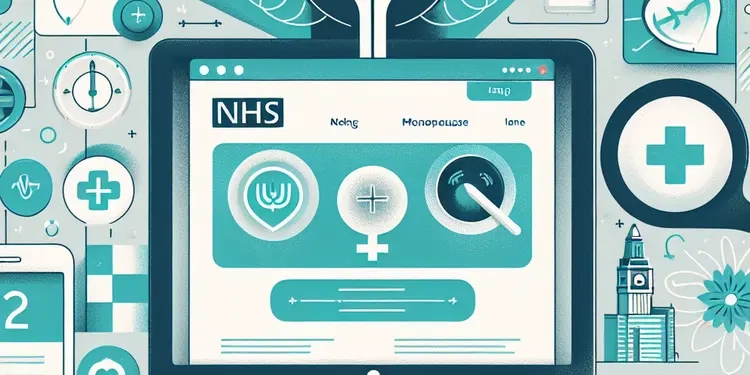
Does the NHS offer an online hospital for menopause?
Relevance: 86%
-
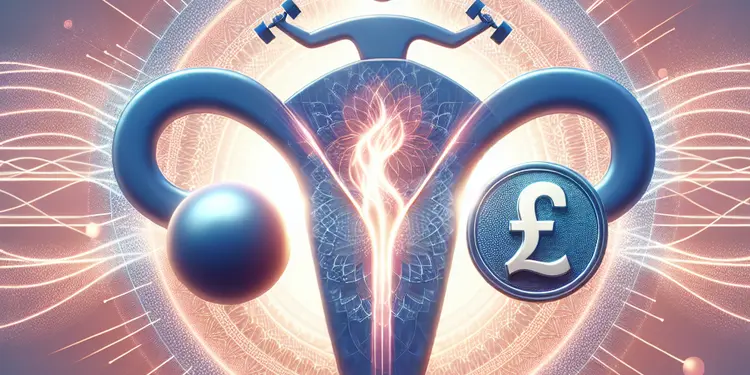
How does exercise impact menopause masking?
Relevance: 85%
-
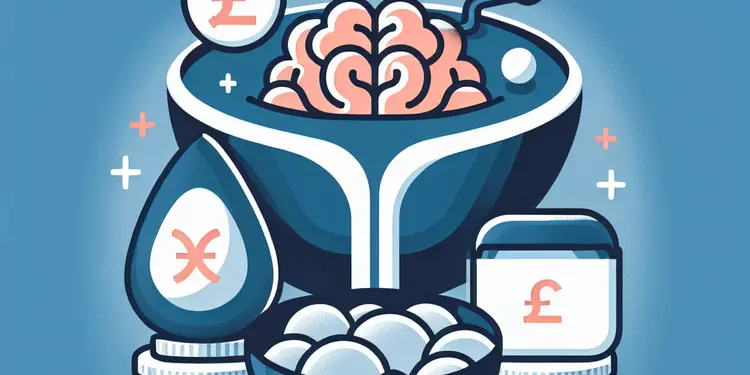
Is the age of menopause onset related to dementia risk?
Relevance: 85%
-
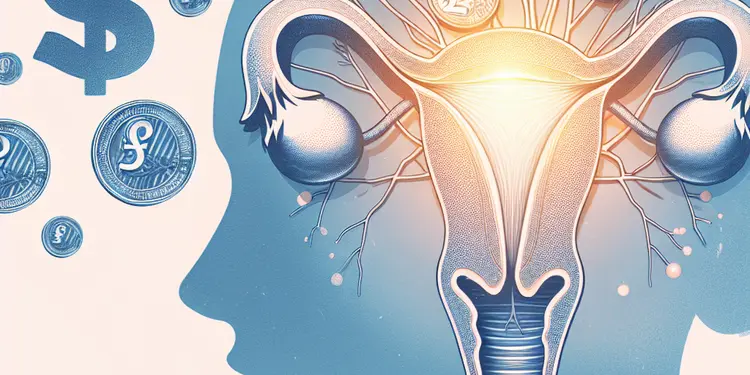
Can menopause affect bone health?
Relevance: 85%
-
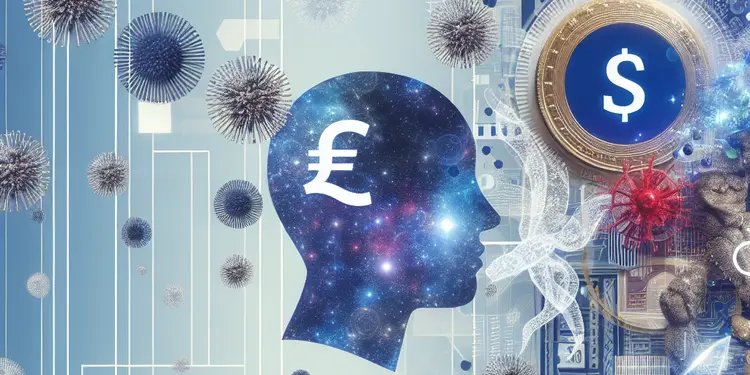
What psychological effects can menopause have?
Relevance: 85%
-

Why do some women use menopause masking?
Relevance: 85%
-

Can stress management aid in menopause masking?
Relevance: 85%
-

Does the NHS offer an online hospital for menopause?
Relevance: 85%
-

Are there psychological impacts of menopause that affect cognitive health?
Relevance: 85%
-

Can lifestyle changes help with menopause masking?
Relevance: 85%
-
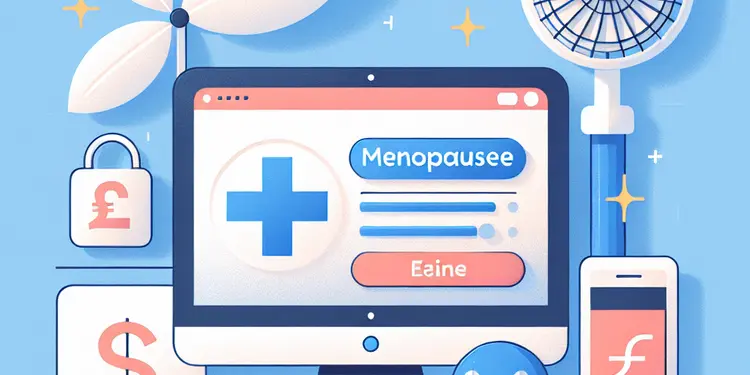
Does the NHS have an online symptom checker for menopause?
Relevance: 84%
-
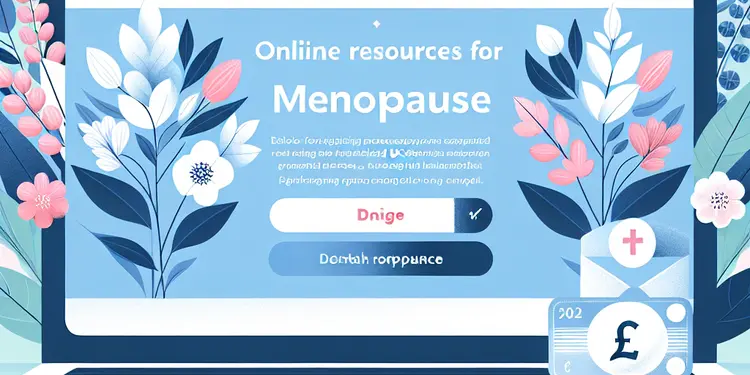
What online resources does the NHS offer for menopause?
Relevance: 83%
-

How does sleep quality relate to menopause symptoms?
Relevance: 83%
-

What further research is needed about menopause and dementia?
Relevance: 83%
-
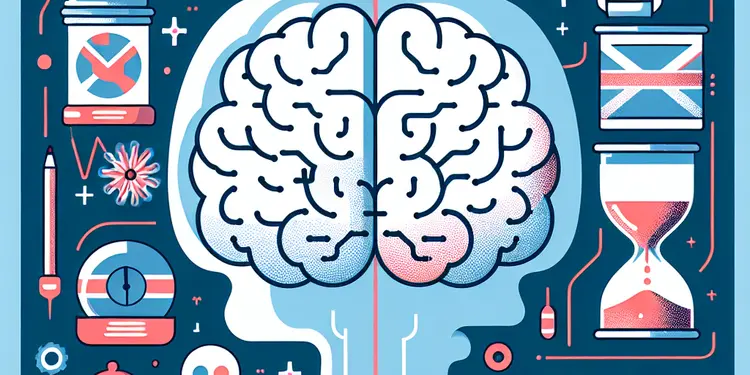
Do all women experience cognitive decline after menopause?
Relevance: 83%
-

What role does diet play in menopause masking?
Relevance: 83%
-
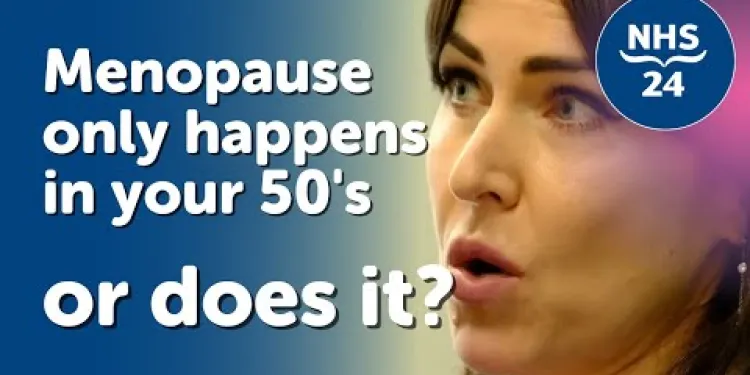
Does Menopause Only Happen in Your 50's? | NHS 24
Relevance: 82%
-

What are the signs of early cognitive decline related to menopause?
Relevance: 82%
Does the Menopause Just Happen Suddenly?
Introduction to Menopause
Menopause is a natural biological process marking the end of a woman’s reproductive years. For women in the United Kingdom, understanding the nuances of menopause can be essential to ensuring proper health and wellness during this transitional period. It is crucial to note that menopause does not just occur suddenly; it is a gradual process involving several stages.The Stages of Menopause
Menopause typically occurs in three stages: perimenopause, menopause, and postmenopause. Each stage has distinctive symptoms and characteristics.Perimenopause
Perimenopause is the transitional phase leading up to menopause and can start as early as the mid-30s or as late as the early 50s. During this stage, a woman’s ovaries gradually produce less estrogen, leading to irregular menstrual cycles. Symptoms may include hot flashes, night sweats, mood swings, and sleep disturbances. This phase can last for several years before reaching menopause.Menopause
Menopause is defined as the point when a woman has not had a menstrual period for 12 consecutive months. The average age of menopause in the UK is around 51 years. During this stage, the ovaries cease releasing eggs, and estrogen levels drop significantly. Symptoms from perimenopause may continue into this stage, often with varying intensity.Postmenopause
Postmenopause is the stage following menopause. Symptoms experienced during perimenopause and menopause may gradually ease for many women. However, the lowered levels of estrogen can also increase the risk of certain health conditions, such as osteoporosis and cardiovascular disease. Regular check-ups and a consistent healthcare plan are vital during this stage.Recognising the Symptoms
Understanding and recognising the symptoms of each menopause stage is crucial for effective management. Common symptoms across the stages may include:- Irregular periods
- Hot flashes and night sweats
- Sleep disturbances
- Mood swings and irritability
- Vaginal dryness and discomfort during intercourse
- Weight gain and slowed metabolism
Managing Menopause
Management of menopause symptoms can include lifestyle changes, hormone replacement therapy (HRT), and alternative treatments. Regular exercise, a balanced diet, and stress management techniques can all contribute to easing symptoms. It's essential for women in the UK to consult with their healthcare providers to develop a tailored plan that suits their individual needs.Conclusion
Menopause does not happen suddenly; it is a gradual process involving multiple stages that unfold over several years. By recognising the symptoms and stages, women in the United Kingdom can better manage their health and well-being during this significant transition. Consulting healthcare professionals and adopting a proactive approach to symptom management can help navigate this phase more comfortably.Does the Menopause Just Happen Suddenly?
What is Menopause?
Menopause is when a woman's body stops being able to have babies. It is a normal part of getting older. In the UK, it is important for women to understand menopause so they can stay healthy. Menopause doesn't just happen all at once; it happens slowly in a few steps.The Steps of Menopause
Menopause has three main steps: perimenopause, menopause, and postmenopause. Each step has its own signs and things to know.Perimenopause
Perimenopause is the time before menopause. It can start when a woman is around 35 years old or older. During this time, the body makes less of a hormone called estrogen. This can make periods come at different times. Women might also feel hot flushes, sweat a lot at night, have mood swings, or find it hard to sleep. Perimenopause can last a few years before full menopause.Menopause
Menopause is when a woman has not had a period for 12 months in a row. In the UK, this usually happens around age 51. At this stage, the body stops releasing eggs and estrogen levels drop. The symptoms from perimenopause might still happen but could feel different.Postmenopause
Postmenopause happens after menopause. Many of the symptoms from before might get easier. But, having less estrogen can raise the risk of health problems like weak bones or heart issues. It's important to see a doctor regularly and have a good health plan.Knowing the Symptoms
It is important to know what symptoms to look for during menopause. Common symptoms during menopause include:- Periods that come at different times
- Feeling hot suddenly (hot flashes) and sweating at night
- Having trouble sleeping
- Feeling moody or cranky
- Feeling dry or uncomfortable in the private areas
- Gaining weight or having a slower digestion
How to Cope with Menopause
Women can make menopause easier by changing some daily habits. This can include exercising, eating healthy foods, and learning how to relax. Some women may talk to their doctor about hormone replacement or other treatments. It is good to work with a healthcare provider to make a plan that is just right.Conclusion
Menopause doesn't happen all at once. It takes time and happens in steps over several years. By knowing what to look for and how to handle it, women in the UK can feel better and be healthier during this big change. Talking to doctors and being ready can make this time easier.Frequently Asked Questions
What is menopause?
Menopause is a natural biological process marking the end of a woman's menstrual cycles. It is diagnosed after 12 months without a menstrual period and typically occurs around the age of 51.
Does menopause happen suddenly?
Menopause generally doesn't happen suddenly. It usually occurs in stages: perimenopause, menopause, and postmenopause. Perimenopause can begin several years before menopause when hormone levels start to fluctuate.
What are the stages of menopause?
The stages of menopause include perimenopause (the transition leading up to menopause), menopause (the point when a woman has not had a menstrual period for 12 consecutive months), and postmenopause (the years following menopause).
What is perimenopause?
Perimenopause is the transitional period before menopause when a woman's hormone levels start to change, leading to symptoms such as irregular menstrual periods, hot flushes, and mood swings.
How long does perimenopause last?
Perimenopause usually lasts between 4 and 10 years, but the duration can vary for each woman.
What are common symptoms of menopause?
Common symptoms of menopause include hot flushes, night sweats, mood changes, vaginal dryness, sleep problems, and irregular periods.
Are there treatments for menopause symptoms?
Yes, treatments for menopause symptoms include hormone replacement therapy (HRT), lifestyle changes, dietary adjustments, and over-the-counter remedies. It is best to consult with a healthcare professional to determine the most appropriate treatment.
Can menopause affect mental health?
Yes, menopause can affect mental health. Changes in hormone levels can lead to mood swings, depression, anxiety, and other emotional challenges.
Is it possible to become pregnant during perimenopause?
Yes, it is still possible to become pregnant during perimenopause as ovulation can still occur, albeit irregularly.
When should I see a doctor about menopause symptoms?
You should see a doctor if your menopause symptoms are severe or impacting your quality of life. It's also important to have regular check-ups to monitor your health during this transition.
Are there natural remedies for menopause symptoms?
Yes, natural remedies such as phytoestrogens, herbal supplements, regular exercise, and a well-balanced diet can help alleviate menopause symptoms. Always consult with a healthcare professional before starting any new treatment.
Does menopause increase the risk of any health problems?
Yes, menopause can increase the risk of certain health problems such as osteoporosis, cardiovascular disease, and urinary incontinence due to lower levels of estrogen.
How can lifestyle changes help with menopause symptoms?
Lifestyle changes such as regular physical activity, a healthy diet, smoking cessation, and reducing alcohol consumption can help manage menopause symptoms and improve overall health.
Can men experience a similar phase to menopause?
Men do not experience menopause, but they can go through andropause, a phase where testosterone levels decrease, leading to symptoms like fatigue, depression, and decreased libido.
What support is available for women going through menopause?
Support for women going through menopause includes healthcare professionals, menopause clinics, support groups, counseling, and educational resources from organisations like the NHS and the British Menopause Society.
What is menopause?
Menopause is a time when a woman's body changes and she stops having periods. This usually happens when she is around 45 to 55 years old.
Some things that can help during menopause:
- Talking to a doctor
- Eating healthy food
- Exercising regularly
- Getting enough sleep
Menopause is a normal part of life for women. It happens when a woman stops having her monthly periods. Doctors say it is menopause after 12 months without any periods. This usually happens around age 51.
Does menopause happen all at once?
No, menopause does not happen all at once.
It happens slowly over time. This time is called perimenopause.
During perimenopause, periods might change. They can be closer together or further apart.
You might have hot flashes or trouble sleeping.
Perimenopause can last a few years before menopause.
Tip: It can help to talk to a doctor about how to feel better during this time.
Menopause does not happen all at once. It has three steps: perimenopause, menopause, and postmenopause. Perimenopause can start many years before menopause. This is when your body's hormone levels start to change.
What happens during menopause?
Menopause is when a woman stops having her period.
There are three main stages:
- Perimenopause: This is when changes start. Periods may not come regularly. Hot flashes and other symptoms can happen. This stage can last a few years.
- Menopause: This is when a woman has not had a period for 12 months. The body makes less of some hormones.
- Postmenopause: This is after menopause. Symptoms may get better. It's important to take care of your health.
If you want help understanding menopause, talk to a doctor or health nurse. Using apps or books written for kids can also help. Ask someone you trust to read with you.
Menopause happens in three big steps. The first step is perimenopause. This is when your body starts to change before menopause. The next step is menopause. This is when you have gone 12 months without a period. The last step is postmenopause. This is the time after menopause.
Here are some helpful ways to understand these changes:
- Talking to a doctor can help.
- Keeping a calendar can help you track your periods.
- Reading books about menopause can give you more information.
What is perimenopause?
Perimenopause is when a woman's body starts to change before menopause. It's like getting ready for menopause. During this time, hormones in the body start to change. This can cause different feelings and changes in the body.
If this is hard to read, you can ask someone to read it with you. You can also try using an online tool that reads text aloud. That might help!
Perimenopause is the time before menopause. It is when a woman's body starts to change. Her hormone levels change, which can cause things like periods that are not regular, feeling hot suddenly, and having mood changes.
How long does the time before menopause last?
The time before menopause is called perimenopause. It is when a woman's body starts to change before stopping periods.
Perimenopause can last for a different time for each person. It might be a few months, or it could be many years. Most people have perimenopause for 4 to 8 years before menopause happens.
Some people find it helpful to use a calendar or an app to keep track of their periods and symptoms during this time. Talking to a doctor can also help you know what to expect and what you can do to feel better.
Perimenopause is when a woman’s body starts to change before menopause. It can last between 4 and 10 years. But it is different for every woman.
What happens during menopause?
Menopause is when a woman's body changes and she stops having periods. Here are some things that might happen:
- Hot flashes - Feeling very warm and sweaty all of a sudden.
- Night sweats - Sweating a lot while sleeping.
- Mood changes - Feeling happy or sad more easily.
- Sleep problems - Having trouble sleeping at night.
- Dry skin - Skin might feel dry or itchy.
- Forgetfulness - Having a hard time remembering things.
It helps to talk with a doctor or a nurse about menopause. They can explain it better and suggest what to do to feel better.
When a woman goes through menopause, she might have some common signs:
- Feeling hot quickly, called hot flushes
- Waking up sweaty at night, called night sweats
- Feeling sad or grumpy, called mood changes
- Feeling dry in private parts, called vaginal dryness
- Having trouble sleeping
- Periods that stop and start
Tools that can help:
- Ask a doctor for advice
- Keep a fan nearby to cool down
- Talk to friends or family for support
- Try relaxing activities like deep breathing
Can you get help for menopause signs?
Menopause is when a woman stops having periods. It can cause signs like hot flashes or feeling sad. There are ways to help with these signs:
- Talk to a doctor: A doctor can give advice and medicine to help.
- Stay cool: Wear light clothes and keep a fan nearby.
- Exercise: Moving around can help you feel better.
- Eat healthy food: Eating fruits and vegetables is good.
Ask family or friends for help and talk about how you feel. It is okay to ask for support.
Yes, there are ways to help with menopause symptoms. You can try hormone treatments, change how you live, eat different foods, or use medicines you can buy at the store. It's a good idea to talk to a doctor to find out what is best for you.
Can menopause affect how we feel?
Menopause is a time when a person stops having periods. It usually happens to women around the age of 50. During menopause, the body changes, and it can affect how someone feels.
Sometimes, these changes can make people feel sad, worried, or angry. It's normal to have these feelings during menopause.
Talking to a doctor can help if these feelings become difficult to manage. Sharing your feelings with friends and family might also be helpful.
Some tools that might help are:
- Relaxing activities like yoga or deep breathing
- Eating healthy food and exercising
- Keeping a diary to write about your feelings
Remember, it's okay to ask for help if you need it.
Yes, menopause can change how you feel. When hormones change, it can make your mood swing. You might feel sad, worried, or have other strong feelings.
Can you get pregnant during perimenopause?
Yes, it's possible. Perimenopause is the time when a woman's body is slowly stopping its monthly cycles. But she can still get pregnant.
If you don't want to get pregnant, keep using protection. Talk to a doctor for advice.
Helpful tools: Use apps to track cycles or reminders to take medicine.
Yes, you can still get pregnant during perimenopause. This is because your body can still release eggs, even if it's not regular.
When to Talk to a Doctor About Menopause Problems?
Menopause is when a woman's periods stop. It is normal but can have symptoms. Symptoms are things your body feels.
You might feel:
- Hot flashes (feeling very hot suddenly)
- Night sweats (sweating when you sleep)
- Changes in mood (feeling sad or worried)
- Trouble sleeping
- Dry skin
If these problems make you feel bad or stop you from doing things, it is good to talk to a doctor.
Here is what you can do:
- Write down how you feel and what symptoms you have.
- Tell the doctor how long you have had these feelings.
- Ask a trusted friend or family member to go with you to the doctor.
If you are worried or have questions, seeing a doctor can help you feel better.
Go to the doctor if you feel really bad because of menopause. If menopause makes life hard for you, the doctor can help. It’s also good to see the doctor regularly to check how healthy you are during this time.
If reading is tough, try asking someone to read with you or use an app that can read the text out loud.
Can natural things help with menopause symptoms?
Yes, there are some natural ways that might help. Here are a few:
- Herbs: Some people use plants like black cohosh and red clover. These might help with hot flashes.
- Healthy Food: Eating fruits, vegetables, and whole grains can help you feel better.
- Exercise: Moving your body, like walking or yoga, can help with mood and sleep.
- Relaxation: Doing things that calm you, like deep breathing or meditation, can help too.
It’s a good idea to talk to a doctor before trying new things. They can help you pick what’s best for you.
Using tools like picture cards or a reading buddy can help you understand better.
Yes, there are natural ways to feel better during menopause. These include plants with special chemicals, herbal pills, exercise, and eating healthy foods. Make sure to talk to a doctor before trying anything new.
Does menopause make you more likely to have health problems?
Yes, when women go through menopause, it can cause some health problems. These problems can include weak bones, heart problems, and trouble controlling when you need to pee. This happens because their bodies make less of a hormone called estrogen.
How can changes in daily habits help with menopause symptoms?
Menopause is when a woman's body changes, and it can make her feel hot, tired, or sad. Simple changes in your daily habits can help you feel better.
- Eat Healthy: Eating fruits, vegetables, and whole grains can help your body feel good. Try to eat less sugar and fat.
- Stay Active: Exercise like walking or dancing can make you feel happier and stronger.
- Sleep Well: Try to go to bed at the same time every night. A good sleep helps your body rest.
- Relax: Taking deep breaths, reading a book, or listening to music can help you feel calm.
You can also talk to a doctor or nurse. They can give you more ideas to feel better. You're not alone, and these changes can help!
Changing some things you do every day can help you feel better during menopause. You can:
- Exercise regularly. This means moving your body often, like walking or playing a sport.
- Eat healthy foods. Try to eat more fruits, vegetables, and whole grains.
- Stop smoking. Smoking is bad for your health.
- Drink less alcohol. Alcohol can make menopause symptoms worse.
These changes can help you stay healthy and feel better.
Here are some ideas that might help:
- Ask a friend to join you for a walk.
- Make a list of healthy foods to eat each day.
- Talk to a doctor or a support group if you find it hard to stop smoking or drinking.
Do men go through something like menopause?
Men do not go through menopause. But they can go through a time called andropause. This is when a man's testosterone levels go down. Because of this, they might feel very tired, sad, or have less interest in sex.
Here are some tips to help:
- Talk to a doctor if you feel very tired or sad.
- Exercise can help you feel better.
- Eating healthy food is important.
- Sleeping well helps your body feel good.
What help can women get during menopause?
Menopause is when a woman stops having periods. This can happen around age 50. During this time, women can feel different.
Here are some ways to get help:
- Talk to a doctor: Doctors can give advice and medicine to help.
- Join a group: Speaking with other women going through the same thing can help.
- Eat healthy and exercise: Good food and moving your body can make you feel better.
- Relax: Doing relaxing activities like yoga or deep breathing can help you feel calm.
- Learn more: Reading books or looking up information online can help you understand what's happening.
It's important to know you are not alone, and there is support for you.
Women going through menopause can get help from different places. They can see doctors and nurses, go to special menopause clinics, or join support groups. Talking to a counselor can also help. There are good resources online from places like the NHS and the British Menopause Society that give useful information.
Useful Links
This website offers general information and is not a substitute for professional advice.
Always seek guidance from qualified professionals.
If you have any medical concerns or need urgent help, contact a healthcare professional or emergency services immediately.
Some of this content was generated with AI assistance. We’ve done our best to keep it accurate, helpful, and human-friendly.
- Ergsy carfully checks the information in the videos we provide here.
- Videos shown by Youtube after a video has completed, have NOT been reviewed by ERGSY.
- To view, click the arrow in centre of video.
- Most of the videos you find here will have subtitles and/or closed captions available.
- You may need to turn these on, and choose your preferred language.
- Go to the video you'd like to watch.
- If closed captions (CC) are available, settings will be visible on the bottom right of the video player.
- To turn on Captions, click settings .
- To turn off Captions, click settings again.
More Items From Ergsy search
-

What is menopause?
Relevance: 100%
-

Menopause Myths
Relevance: 100%
-

Living with the menopause
Relevance: 100%
-

Living with the menopause
Relevance: 99%
-

What is menopause masking?
Relevance: 96%
-

What is menopause masking?
Relevance: 96%
-

Talking menopause with your GP
Relevance: 93%
-

Talking menopause with your GP
Relevance: 93%
-

Is it possible to delay menopause naturally?
Relevance: 92%
-

What is the role of estrogen in menopause?
Relevance: 91%
-

What are common symptoms of menopause?
Relevance: 91%
-

Are there natural remedies for menopause masking?
Relevance: 90%
-

Does the menopause just happen suddenly?
Relevance: 89%
-

Is there scientific evidence linking menopause to dementia?
Relevance: 88%
-

Is menopause linked to loss of brain matter?
Relevance: 88%
-

What are the links between menopause and dementia?
Relevance: 88%
-

Are there specific types of dementia linked to menopause?
Relevance: 88%
-

What is the difference between perimenopause and menopause?
Relevance: 87%
-

What treatments are available for menopause masking?
Relevance: 87%
-

Can acupuncture help with menopause masking?
Relevance: 87%
-

How long does menopause typically last?
Relevance: 86%
-

Are there any NHS apps for managing menopause symptoms?
Relevance: 86%
-

Does the NHS offer an online hospital for menopause?
Relevance: 86%
-

How does exercise impact menopause masking?
Relevance: 85%
-

Is the age of menopause onset related to dementia risk?
Relevance: 85%
-

Can menopause affect bone health?
Relevance: 85%
-

What psychological effects can menopause have?
Relevance: 85%
-

Why do some women use menopause masking?
Relevance: 85%
-

Can stress management aid in menopause masking?
Relevance: 85%
-

Does the NHS offer an online hospital for menopause?
Relevance: 85%
-

Are there psychological impacts of menopause that affect cognitive health?
Relevance: 85%
-

Can lifestyle changes help with menopause masking?
Relevance: 85%
-

Does the NHS have an online symptom checker for menopause?
Relevance: 84%
-

What online resources does the NHS offer for menopause?
Relevance: 83%
-

How does sleep quality relate to menopause symptoms?
Relevance: 83%
-

What further research is needed about menopause and dementia?
Relevance: 83%
-

Do all women experience cognitive decline after menopause?
Relevance: 83%
-

What role does diet play in menopause masking?
Relevance: 83%
-

Does Menopause Only Happen in Your 50's? | NHS 24
Relevance: 82%
-

What are the signs of early cognitive decline related to menopause?
Relevance: 82%


